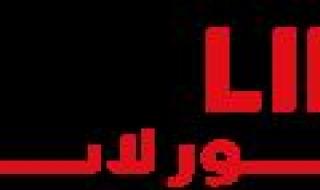أشعلت الإعلامية اللبنانية ريما مكتبي جدلاً واسعاً بعد سؤالٍ مباشر وجريء وجهته إلى رئيس الحكومة نواف سلام خلال مشاركته في قمة الابتكار 2025 في بيروت، حين تساءلت عمّا إذا كانت «سورية الجديدة سبقت لبنان على الساحة الدولية رغم 13 سنة من الحرب المدمّرة».
مكتبي قالت مخاطبة سلام: «هناك شعور أن سورية أسرع، رغم حربٍ طاحنة استمرت 12 أو 13 سنة.. متى نراك أنت ورئيس الجمهورية في عواصم القرار، مثل ما عم نشوف الغير؟»، لتفتح الباب أمام نقاشٍ محتدم حول مكانة لبنان الإقليمية في ظل الصعود المتسارع لـ«سورية الجديدة» بقيادة الرئيس أحمد الشرع.
وردّ رئيس الحكومة نواف سلام بنبرة هادئة قائلاً إن العلاقة بين بيروت ودمشق لا تُقاس بمنطق التنافس، بل بالمصير المشترك بين البلدين، مضيفاً: «نحن لا نتنافس، بل نسعد بأن سورية استعادت استقرارها، فاستقرارنا من استقرارها. لقد طوينا صفحة الماضي ونطمح إلى علاقات جديدة تقوم على الاحترام المتبادل وعدم التدخل».
وأضاف سلام أن البلدين دفعا ثمناً باهظاً للتدخل المتبادل عبر العقود الماضية، موضحاً: «عانينا من التدخل السوري في شؤون لبنان، وأعلم أن الإخوة السوريين أيضاً عانوا من التدخل اللبناني».
انتشر الفيديو على نطاق واسع، حيث اعتبره ناشطون لحظة نادرة من الصراحة السياسية وقراءة واقعية لموازين القوى الإقليمية، في حين رأى آخرون أن سؤال مكتبي عبّر عن قلق لبناني حقيقي من تراجع الحضور الدولي لبيروت مقابل صعود دمشق إلى المشهد العالمي.
وبين مؤيدٍ وناقد، ظلّ المشهد حديث المنصات ووسائل الإعلام، بوصفه علامة فارقة في الخطاب اللبناني الذي بدأ يعيد النظر في موقعه من سورية والمنطقة.
The Lebanese journalist Rima Maktabi sparked widespread controversy after a direct and bold question she posed to Prime Minister Nawaf Salam during his participation in the Innovation Summit 2025 in Beirut, when she asked whether "the new Syria has outpaced Lebanon on the international stage despite 13 years of devastating war."
Maktabi addressed Salam, saying: "There is a feeling that Syria is moving faster, despite a brutal war that lasted 12 or 13 years... When will we see you and the President in the decision-making capitals, like we see others?" This opened the door to a heated discussion about Lebanon's regional standing in light of the rapid rise of "new Syria" under President Ahmad al-Shara's leadership.
Prime Minister Nawaf Salam responded in a calm tone, stating that the relationship between Beirut and Damascus should not be measured in terms of competition, but rather in the shared destiny between the two countries. He added: "We are not competing; rather, we are pleased that Syria has regained its stability, as our stability is tied to its stability. We have turned the page on the past and aspire to new relations based on mutual respect and non-interference."
Salam further noted that both countries have paid a heavy price for mutual interference over the past decades, explaining: "We suffered from Syrian interference in Lebanon's affairs, and I know that our Syrian brothers also suffered from Lebanese interference."
The video went viral, with activists considering it a rare moment of political honesty and a realistic reading of the regional power dynamics, while others viewed Maktabi's question as a genuine Lebanese concern about the declining international presence of Beirut in contrast to the rising prominence of Damascus on the global stage.
Amid supporters and critics, the scene remained a topic of discussion on platforms and media, marking a turning point in the Lebanese discourse that is beginning to reassess its position regarding Syria and the region.
ملحوظة: مضمون هذا الخبر تم كتابته بواسطة عكاظ ولا يعبر عن وجهة نظر مصر اليوم وانما تم نقله بمحتواه كما هو من عكاظ ونحن غير مسئولين عن محتوى الخبر والعهدة علي المصدر السابق ذكرة.






